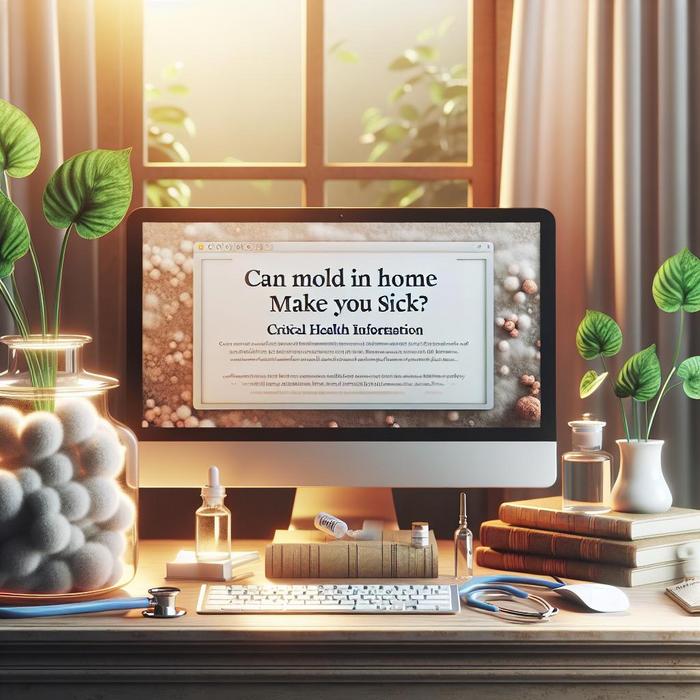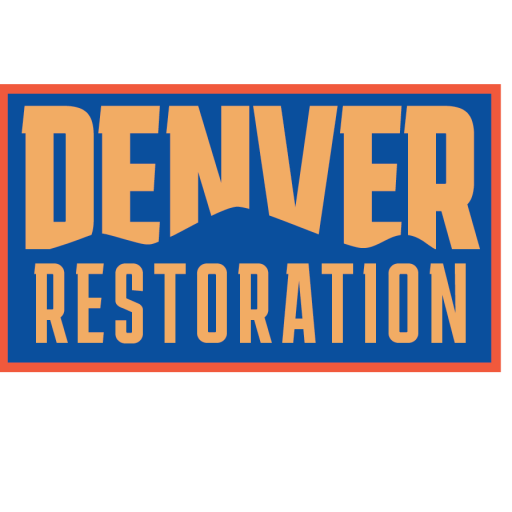Understanding Mold and its Impact
Mold is a common issue that many homeowners, property managers, and business owners face. It may seem harmless, but certain types of molds are notorious for causing significant health problems. You may have heard that mold, particularly black mold, could make you sick, and you are probably wondering, ‘can mold really make you sick?’. The answer is yes, under certain conditions, exposure to mold can lead to a variety of health issues.
The Invisible Enemy
Mold is a type of fungus that grows in damp and poorly ventilated areas. It releases spores into the air, which are small enough to be inhaled by people and pets. According to the New York State Department of Health, prolonged exposure to these mold spores, especially in a confined area, can lead to health issues.
Health Risks Associated with Mold
Exposure to mold can cause a variety of symptoms, ranging from minor allergies to serious respiratory issues. Here are a few key points to understand:
– Allergic reactions: Some people may exhibit allergic reactions such as sneezing, runny nose, red eyes, and skin rash. These symptoms can be immediate or delayed.
– Asthma attacks: For people with asthma, inhaling mold spores can trigger an asthma attack.
– Immune-compromised individuals and individuals with chronic lung illnesses can develop serious infections in their lungs when exposed to mold.
Identifying Mold in Your Home or Business
One of the most challenging aspects of handling mold is that it can be difficult to identify. Unlike water damage or fire damage, mold growth can often go unnoticed until it starts causing health problems or visible damage to your property. Regular checks for mold, especially in damp areas such as bathrooms, basements, and underneath sinks, can help prevent a full-blown mold infestation.
Professional Mold Damage Assessment and Restoration
Just like water and fire damage, mold damage requires a professional approach. Restoration experts are trained to accurately assess the extent of the mold damage and determine the best course of action for remediation. They utilize advanced tools and techniques to ensure that all traces of mold are removed, and your property is restored to its former state.
Moreover, restoration experts follow stringent environmental and health safety guidelines to ensure the process doesn’t pose any additional risks. A crucial part of their role is also customer communication – they’ll guide you through the process, helping you understand what’s going on, and how they’re working to ensure your safety.
Mitigating Mold Damage
Knowledge is power. By knowing the risks of mold and how to identify it, you’ve already taken a highly important step towards protecting yourself and your property. Here are some practical steps you can take to reduce the risk of mold growth:
– Keep your property well-ventilated and dry.
– Regularly check for leaks and address them immediately.
– Clean your property regularly, paying special attention to damp areas.
Take Control of Your Health and Property
In conclusion, the answer to the question, “can mold make you sick?” is yes, but only when exposed for prolonged periods and in large quantities. However, with the right steps, you can control and keep mold at bay. If mold damage does occur, seek professional help promptly. With the help of a well-versed restoration company, you can rid your property of mold and prevent future infestations. Remember, you have the power to prevent mold exposure and ensure the health and safety of your household or business. Stay informed, take precautionary measures, and always prioritize health.
The Dangers of Mold
It is not uncommon for most people to brush off the presence of mold, viewing it as a mere inconvenience. However, the dangers of mold extend much beyond simple aesthetics. As explored earlier, continuous exposure to certain types of mold may lead to debilitating health issues. Interestingly, even the World Health Organization acknowledges the relationship between indoor dampness, mold, and health risks.
But the impact is more than just health. Mold damage may also pose detrimental risk to your property. The recurring dampness favorable for mold growth could weaken the foundational structures of your property leading to increased maintenance costs. This could substantially depreciate the market value of your property negatively impacting your financial assets.
Mold: Fire and Water Damage
It’s important to note that instances of water or fire damage create a ripe environment for mold growth. Properties affected by excessive water from flooding or firefighting efforts are prone to damp conditions – an optimal environment for mold growth.
Mold After Water Damage
After a devastating event such as a flood or significant water leakage, property owners are often left with the overwhelming task of restoring their buildings. However, as you begin the restoration process, do not underestimate the possibility of secondary damage, specifically mold infestation.
After water damage, mold growth can start in as little as 24 to 48 hours. This happens especially if there is no proper drying or the water source is not completely eradicated. Remember, mold thrives in a moist environment and if it finds a suitable one, due to water damage, it could spread rapidly within the property.
Fire Damage and Mold Growth
In the aftermath of a fire, the focus is usually on damage caused by the flames. However, the process of extinguishing a fire often leads to extensive water damage, paving the way for mold growth.
When firefighters combat a blaze, they use substantial amounts of water which inevitably soaks into various parts of the property. If not handled promptly, this moisture creates an ideal environment for mold growth which could exacerbate the already catastrophic damage caused by fire.
The Importance of Timely Intervention
In dealing with mold, quick and timely intervention is key. The quicker you can start the process of remediation, the more damage you can prevent, not only to your property but also potentially to your health.
Teams of well-trained restoration experts understand the need for prompt action. They employ the latest technology and restoration methods to stop mold in its tracks, remediate its impacts, and prevent future mold growth.
The Role of Insurance in Mold Restoration
Insurance can provide a financial lifeline when dealing with mold damage. Understanding what your insurance policy covers in terms of mold damage and remediation is crucial to effectively managing the cost of restoration.
Often, the type of coverage you receive will depend on the source of the mold – whether it was due to a ‘covered peril’ such as a storm or water damage from firefighting efforts. So, it’s important that you understand your policy or speak with your insurance agent to clarify coverage.
Proactive Prevention of Mold
While timely intervention is necessary in dealing with mold, proactive prevention is even better. The saying ‘an ounce of prevention is worth a pound of cure’ decidedly applies to this. Here are some preventative measures you can take:
– Monitor humidity levels: Mold requires humidity to grow. By ensuring your home or business is adequately ventilated and that humidity levels, especially in basements, bathrooms, and kitchens are under control, you can significantly curb the potential for mold growth.
– Fix leaks promptly: Leaking roofs, pipes, or other areas with plumbing can create an ideal moisture-rich environment for mold. Fixing these leaks as soon as they are detected can prevent mold spores from flourishing.
– Maintain a clean property: Regular cleaning, especially in areas that come into contact with a lot of water such as kitchens and bathrooms, can help limit the potential sources of food for mold.
A Partner in Mold Restoration
Whether you are battling a serious mold infestation or in need of guidance to prevent mold growth, the importance of an experienced restoration partner cannot be overstated. As trusted restoration experts, we provide comprehensive services from mold inspection, assessment, remediation to ultimately restoring your property to its pre-damage state.
Mold, while seemingly benign, can have a profound impact on your health and property. But with the right strategies, support and swift action, you can ensure it remains a problem you need never face.

